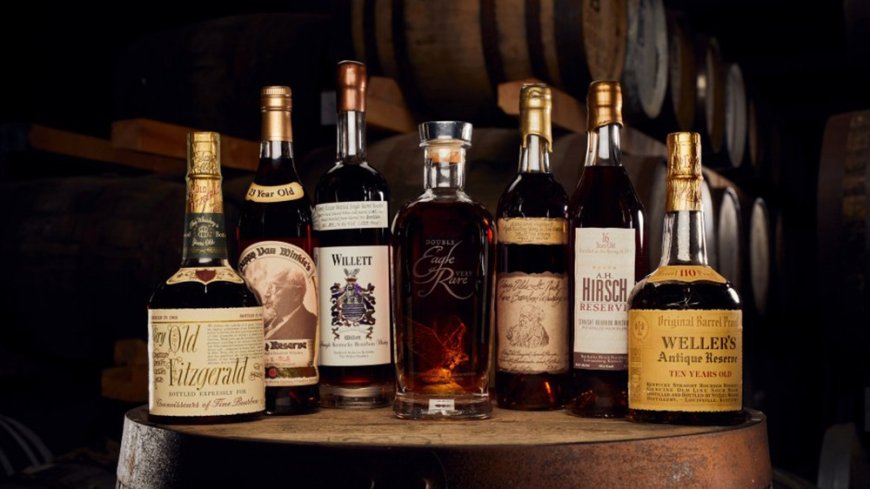Selling Rare vs. Common Bottles: Strategies for Different Types of Whiskey

Whiskey collecting has grown significantly over the years, with enthusiasts building collections of rare and valuable bottles. If you’re interested in selling whiskey, it’s important to understand the strategies that apply to different types. Whether you're looking at rare or common bottles, each type requires its own approach for the best results. This guide will help you decide where to sell whiskey and how to sell whiskey collections effectively, no matter their rarity.
Understanding the Market for Rare and Common Whiskey Bottles
When it comes to selling whiskey, the value of a bottle depends heavily on its rarity and demand. Rare whiskey bottles are often limited editions, aged bottles, or discontinued products that collectors seek out. Common whiskey bottles, while not as rare, still hold value, especially for buyers looking for consistent, affordable options. Knowing the market for each type will help in setting a fair price and targeting the right buyers.
Selling Rare Whiskey Bottles: Tips and Strategies
Selling rare whiskey bottles can be highly rewarding. Rare bottles attract collectors and enthusiasts who are willing to pay a premium for quality and uniqueness. Here are some strategies to keep in mind when selling rare bottles.
-
Get an Appraisal for Accurate Valuation
Before selling a rare bottle, consider getting an appraisal. A professional appraisal can give you a reliable estimate of the bottle’s market value based on factors like age, brand, condition, and rarity. This step will help you price your whiskey fairly, ensuring that you’re not underselling a valuable item.
-
Choose Specialized Marketplaces
Rare bottles do best on specialized marketplaces and auction sites that cater to collectors. Platforms like Whisky Auctioneer, Sotheby’s, or Bonhams focus on whiskey sales and attract serious buyers. Selling on these platforms often requires a fee, but the access to collectors willing to pay high prices often outweighs this cost.
-
Document and Authenticate the Bottle
Collectors of rare whiskey value authenticity. If you have proof of purchase, a certificate of authenticity, or any documentation proving the bottle’s history, it’s wise to include this information in your listing. Good documentation adds credibility, making it easier for buyers to justify a higher price.
-
Consider Timing and Demand
Certain times of the year, like holidays, can bring higher demand for rare whiskey. Pay attention to the market to sell when interest and demand are high. For instance, winter months are often a peak time for whiskey sales, as buyers seek special gifts or additions to their collections.
Selling Common Whiskey Bottles: Efficient Approaches
Selling common whiskey bottles doesn’t come with the same premium as rare bottles, but there is still a substantial market for them. Here are strategies to consider for common whiskey bottles.
-
Utilize Local Platforms and Retailers
If you’re wondering where to sell whiskey, consider local options for common bottles. Many buyers are interested in local sales through online marketplaces like Craigslist or Facebook Marketplace. Local retailers or bars may also buy common bottles, especially if they’re looking to expand their selection.
-
Focus on Bulk Sales
Selling common bottles in bulk can attract buyers who want a larger selection without the premium price of rare bottles. This approach works well if you have multiple bottles of similar value. Offering a discount for bulk purchases can attract buyers who appreciate the added value.
-
Leverage Social Media and Collector Groups
For selling common bottles, social media platforms and whiskey enthusiast groups can be effective. Many whiskey groups on Facebook or Reddit allow users to post about bottles for sale. This is a simple, cost-effective way to reach interested buyers directly.
Knowing When to Sell Your Collection
Knowing how to sell a whiskey collection can make a big difference in maximizing its value. If you have a mix of rare and common bottles, consider selling them separately. Grouping rare bottles can attract serious collectors, while selling common bottles in bulk can move the inventory faster. Researching market trends and selling at the right time will help you achieve the best price possible.
Wind-Up: Selling with Confidence
Whether selling rare or common whiskey bottles, the key is to understand each market and tailor your approach. By using platforms suited to each type and timing your sale well, you can make the most of your collection. For a trusted experience, work with a reputable dealer or platform to guide you through the process.
What's Your Reaction?





















